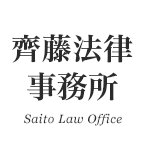Best Work Injury Lawyers in Tokyo
Share your needs with us, get contacted by law firms.
Free. Takes 2 min.
List of the best lawyers in Tokyo, Japan
About Work Injury Law in Tokyo, Japan
In Tokyo, Japan, work injury law falls under the broader umbrella of labor and employment law, with specific provisions governing workplace injuries. The core legal framework includes the Labor Standards Law, the Industrial Safety and Health Law, and the Workers' Accident Compensation Insurance Law. These laws aim to protect workers' health and safety, outline employer responsibilities, and provide compensation and benefits to employees injured or fallen ill due to work-related activities. Understanding these laws can be critical for employees and employers alike in navigating the consequences of workplace injuries.
Why You May Need a Lawyer
Legal help may be essential in various situations concerning work injuries in Tokyo. If you are injured on the job, a lawyer can help you navigate the claims process, ensure you receive all entitled benefits, or assist in disputes over the cause or extent of your injury. Additionally, legal expertise may be necessary if you face retaliation for filing a claim, or if the compensations offered do not cover your medical expenses or lost wages. Lawyers can also aid in understanding and applying complex local laws and regulations.
Local Laws Overview
The Workers' Accident Compensation Insurance Law is a central piece of legislation in Tokyo, providing for medical expenses, time off work, and compensation for permanent disabilities or death resulting from work-related injuries or illnesses. Meanwhile, the Labor Standards Law mandates safe working conditions and outlines employers' responsibilities, including timely payment of wages and prohibition of unjustifiable dismissal. The Industrial Safety and Health Law focuses on preventing accidents and health issues in the workplace through various safety measures and health standards. Understanding these laws is crucial for asserting your rights and obligations in the event of a workplace injury.
Frequently Asked Questions
What should I do immediately after a work injury in Tokyo?
Immediately after a work injury, report the incident to your employer, seek medical attention, and document everything related to your injury, including witness statements and medical reports. Reporting the injury promptly is essential for your compensation claim.
How do I file a work injury claim in Tokyo?
To file a work injury claim, notify your employer and fill out the necessary paperwork provided by them, which they should submit to the Japan Pension Service office. Ensure all documentation, such as medical reports, is thorough and accurate.
Can I see my own doctor?
Yes, under Japanese law, you are entitled to see your own doctor for a work-related injury. However, ensure the doctor is recognized and that the medical reports are properly submitted as part of your claim.
What kind of compensation can I expect for a work injury?
Compensation can include medical expenses, rehabilitation costs, a portion of lost wages, and benefits for permanent disability or death. The exact amount depends on the severity of the injury and its impact on your ability to work.
Can I be fired for filing a work injury claim?
Under Japanese law, employers cannot retaliate against employees for filing work injury claims, including termination. If you face retaliation, seek legal advice immediately.
Is mental health covered under work injury laws?
Yes, mental health conditions resulting from work-related stress or incidents are recognized under Japanese law, and you can claim compensation with proper medical documentation.
How long do I have to file a work injury claim?
The period to file a claim is generally within two years from the date of injury or the date when the injury became apparent. However, consulting a lawyer promptly after the incident is advisable.
What if my employer doesn't report my injury?
If your employer fails to report your injury, you can report it directly to the local Labor Standards Inspection Office or seek legal assistance to ensure your rights are protected.
Can I claim compensation if the injury was partially my fault?
Yes, Japan's workers' compensation system is no-fault, meaning you can still claim compensation regardless of who was at fault for the injury.
What should I do if my claim is denied?
If your claim is denied, you can appeal the decision through the Workers' Accident Compensation Insurance system or seek legal assistance for further action.
Additional Resources
For further information or assistance, consider contacting the Japan Pension Service, the Ministry of Health, Labour, and Welfare, or the Tokyo Labor Bureau. These organizations can provide guidance, and information on work injury laws and procedures. Additionally, consulting with a qualified lawyer specialized in labor law can offer personalized assistance and representation.
Next Steps
If you need legal assistance with a work injury in Tokyo, consider taking the following steps: First, gather all relevant documents, such as medical reports and any correspondence with your employer. Next, seek out a lawyer experienced in work injury cases in Japan; they can guide you through the process, help you understand your rights, and represent you in negotiations or legal proceedings if necessary. Remember, acting promptly can be crucial for the success of your claim.
Lawzana helps you find the best lawyers and law firms in Tokyo through a curated and pre-screened list of qualified legal professionals. Our platform offers rankings and detailed profiles of attorneys and law firms, allowing you to compare based on practice areas, including Work Injury, experience, and client feedback.
Each profile includes a description of the firm's areas of practice, client reviews, team members and partners, year of establishment, spoken languages, office locations, contact information, social media presence, and any published articles or resources. Most firms on our platform speak English and are experienced in both local and international legal matters.
Get a quote from top-rated law firms in Tokyo, Japan — quickly, securely, and without unnecessary hassle.
Disclaimer:
The information provided on this page is for general informational purposes only and does not constitute legal advice. While we strive to ensure the accuracy and relevance of the content, legal information may change over time, and interpretations of the law can vary. You should always consult with a qualified legal professional for advice specific to your situation.
We disclaim all liability for actions taken or not taken based on the content of this page. If you believe any information is incorrect or outdated, please contact us, and we will review and update it where appropriate.












